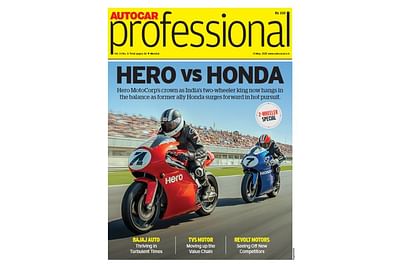DaimlerChrysler purchasing bill to fall
Engineers and researchers work on new ways to offset high price of steel, precious metals and plastics.
DaimlerChrysler's bill for buying goods and services will decline this year despite high prices for raw materials, Thomas Sidlik, head, global procurement and supply (GP&S) told Reuters. He said that his organisation, GP&S, bought over 80 billion euros of goods and services every year, but this year would see cost reductions that will result in a net decrease of its total buy. This decision, he said, was based on a comparable volume and mix of sales.
Sidlik declined to be specific, but said purchasers were working with product engineers and researchers to find ways to offset the drag from high prices for such key items as steel, precious metals and plastics used to make vehicles. This involved using less of some materials, substituting others, re-engineering products and buying in large volumes where possible to get the best prices.
The world's fifth-biggest carmaker spent 85 billion euros (Rs 476,000 crore) on goods and services last year, down from 101.4 billion (567,840 crore) in 2004. It bought 3.4 million tons of steel from the US in 2005, about half of which it sold on to suppliers eager to lock in lower prices. DaimlerChrysler's steel contracts typically run from one to three years, so the company is not affected by short-term volatility in spot steel prices. He said he would look at steel futures contracts as a hedging tool should they become available, but he was not convinced how attractive they would be.
Sidlik played down prospects for eliminating steel from carmaking in favour of other metals or plastics. He felt that, in general, steel was going to be the main commodity in the automobile, and it was a pretty efficient material even at higher prices. Still, DaimlerChrysler is looking at using more magnesium as its price gap over aluminium shrinks. This could cut vehicle weight and improve fuel consumption. Carmakers view fuel cells, which use the chemical interaction between hydrogen and oxygen to generate electricity and emit only water, as the best way to remove cars from the environmental equation.
RELATED ARTICLES
Gestamp targets Japanese automakers with new safety innovations
At AEA 2025 held in Yokohama, the company showcased its latest technological innovations and developments designed to re...
Five Toyota Group companies to push the AI and software envelope
The Toyota Software Academy, set up by Aisin, Denso, Toyota Tsusho, Toyota Motor Corporation, and Woven by Toyota, ims t...
BYD outsells Tesla for the first time in Europe in April
With retail sales of 7,231 BEVs in Europe in April, BYD sold 66 more all-electric cars than Tesla, which registered 7,16...





 By Autocar Pro News Desk
By Autocar Pro News Desk
 06 Oct 2006
06 Oct 2006
 2603 Views
2603 Views









